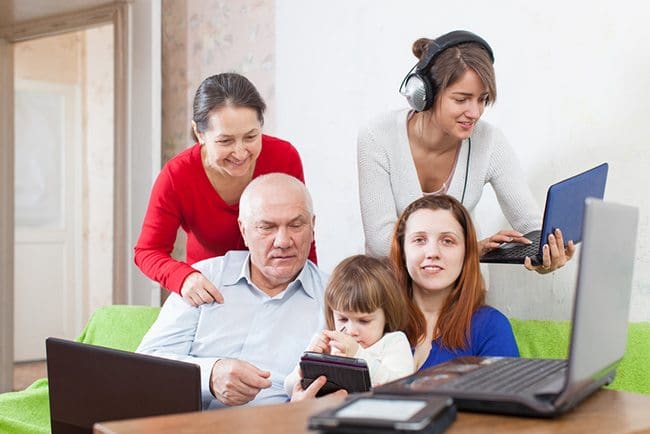Opinions range from totally hostility toward eBook formats to more than accepting; some people think that “real” books are the obvious answer, while others think that eBooks provide a much better learning experience for the children in today’s tech-savvy generation.
Granted, there is a great deal of emotion on both sides of the argument; however, some people are suggesting that maybe both sides have missed the point in all of the “fuss.” Perhaps no one media form is truly better. Maybe each avenue of literature access has a set of unique benefits all of its own.
The Samsung NOOK boasts a set of benefits that are totally unique in comparison to the benefits boasted by traditional reading materials. Most people are fairly familiar with the benefits of traditional books within the education system; however, since eBooks are a relatively new tool in school systems, it can be more difficult to locate valid information concerning the effect of digital reading on children’s educational success. To learn more about the truth behind children’s education and tablets, check out the information below. Even biased individuals are sometimes surprised by the number of benefits eBooks present to the children of today.
Interactive Features
Printed books have an interactive nature of their own; a child can sit down and physically turn pages. He or she can feel the grain of the page and even slide his or her fingers over the smooth inky illustrations featured in popular children’s books. Even though eBooks do not offer the textural interest of a traditionally published book, they host a wide variety of interactive features not available in other facets of publication methodology. Interactive features that are available on tablets include read-aloud books, read-along books, audio based books, books with built in “study guides” or narrative questions, and the ability to access almost any work of literature instantly.
Technology Based Learning
Today’s society is saturated in technology. A person cannot walk down the street without seeing more than a dozen cell phones being used along the way. It is clear that today’s children live in an era in which technological access reigns supreme throughout many different facets of society; this especially applies to educational systems, where the future successes of children may be dependent on how well technology is integrated into the main and supplemental curriculum.
Most people have probably not heard the name “Anne C. Moore;” however, she spoke some of the most profound literature-related words of all time. The writer, children’s advocate, and critic once famously stated that the right book must be found for the right child during the right time frame. How true this rings today, during a time when learning is being tailored more and more to the specific needs of a given child. Finding the right digital book at the right time for the right child is a goal within many educational districts.
Relationship
Do tablets function as babysitters and completely eliminate the need for librarian to child, teacher to child, or parent to child interaction? Of course not! In fact, research indicates that eReaders can be used as tools in the process of building a relationship between mentor and child. Adults can dive into interactive eReader sessions and act out the role of enhancer and supporter – a role that children will always need from trusted “grownups.” According to many eReader advocates, digital literature devices provide a way for adults to help support the overall holistic development of any given child.
Evidence
There is much speculation about the difference between print and digital literature concerning the overall success of young students in the education system; however, little evidence or proof is available with relevant and trustworthy data pointing in one direction or the other. As mentioned previously, it may be best to choose a neutral stance instead of heavily siding concerning traditional print books or choosing to take a “my way is the best way” concerning eBooks. If people can set aside their biases, then finding good qualities in both alternatives is far easier than most think. Some schools are taking this stance by providing both digital and traditional books throughout the educational process, and their efforts are being met with high marks.
The truth of the matter is that the “bells and whistles” present within the framework of interactive digital devices are powerful learning tools, especially for children who struggle to stay interested in more traditional reading methods. Parents all over the place are becoming more and more satisfied with the outcome of digital books within the education system; in fact, most teachers are in favor of the thoughtful implementation of eBook and tablet technology.
Image: Group of people using technology by Shutterstock


